[New Analysis] What does electoral wipeout mean for Yoon’s foreign policy?
Yoon likely to boldly pursue diplomatic initiatives as he faces less support from Assembly, say experts
By Ji Da-gyumPublished : April 11, 2024 - 16:22
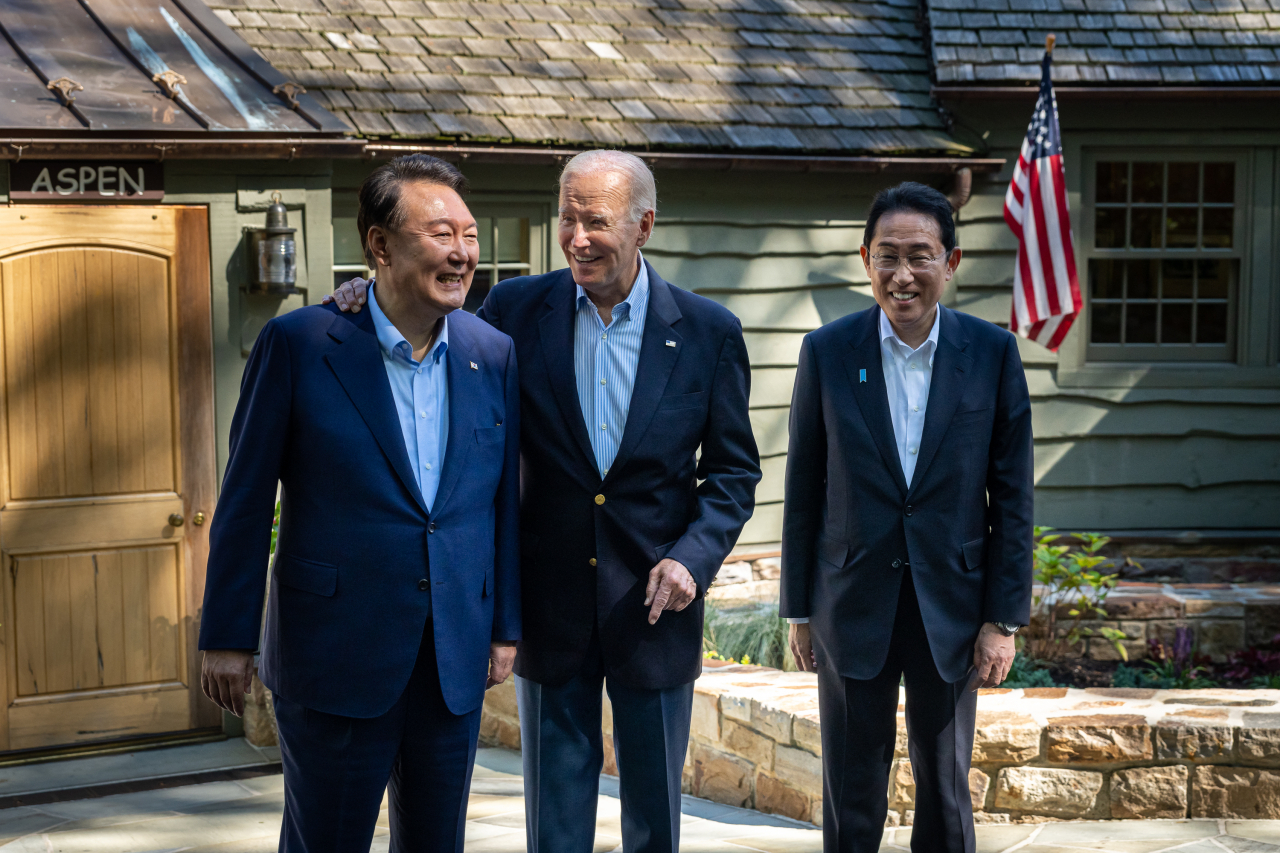
The main opposition Democratic Party of Korea's resounding victory in Wednesday's National Assembly election may leave President Yoon Suk Yeol confronted with a dilemma in the realm of foreign policy.
In essence, the South Korean leader may find himself navigating a pressing need to prioritize foreign affairs, including his landmark rapprochement with Japan and trilateral cooperation with the United States and Japan, amid the looming specter of a lame-duck period.
However, this imperative could be counterbalanced by the potential loss of momentum resulting from the Democratic Party's continued dominance in the National Assembly, experts based in South Korea, Europe, and the US told The Korea Herald on Thursday.
"The election outcome is likely to lead Yoon to continue his focus on foreign and security policy, particularly trilateral cooperation with the US and Japan, as Yoon will be a quasi-lame duck and his domestic agenda will be constantly thwarted by the Democratic Party," Mason Richey, a professor of Graduate School of International and Area Studies at Hankuk University of Foreign Studies, told The Korea Herald.
Experts viewed that Yoon would not alter the trajectory of his foreign policy and continue his diplomatic initiatives unabated by the ruling People Power Party's diminished parliamentary representation.
"In my view, the result of the election will mean that the Yoon government will focus on foreign policy at the expense of domestic politics as much as or even more so than over the past two years," said Ramon Pacheco Pardo, head of the Department of European & International Studies at King's College London.
"After all, the calculus won't change much for Yoon in that he will continue to confront a National Assembly in which the opposition will hold a supermajority or thereabouts."
Andrew Yeo, the SK-Korea Foundation Chair at the Brookings Institution's Center for Asia Policy Studies, said that the "basic contours of Yoon's foreign and national security policy," including support for the South Korea-US alliance, deterrence against North Korea, and the South Korea-US-Japan trilateral cooperation, will remain unchanged for the time being.
"The election outcome is a major setback for President Yoon and the PPP, but more likely for his domestic than foreign policy agenda," Yeo said. "However, the poor election showing has taken some of the wind out of Yoon's foreign policy sail."
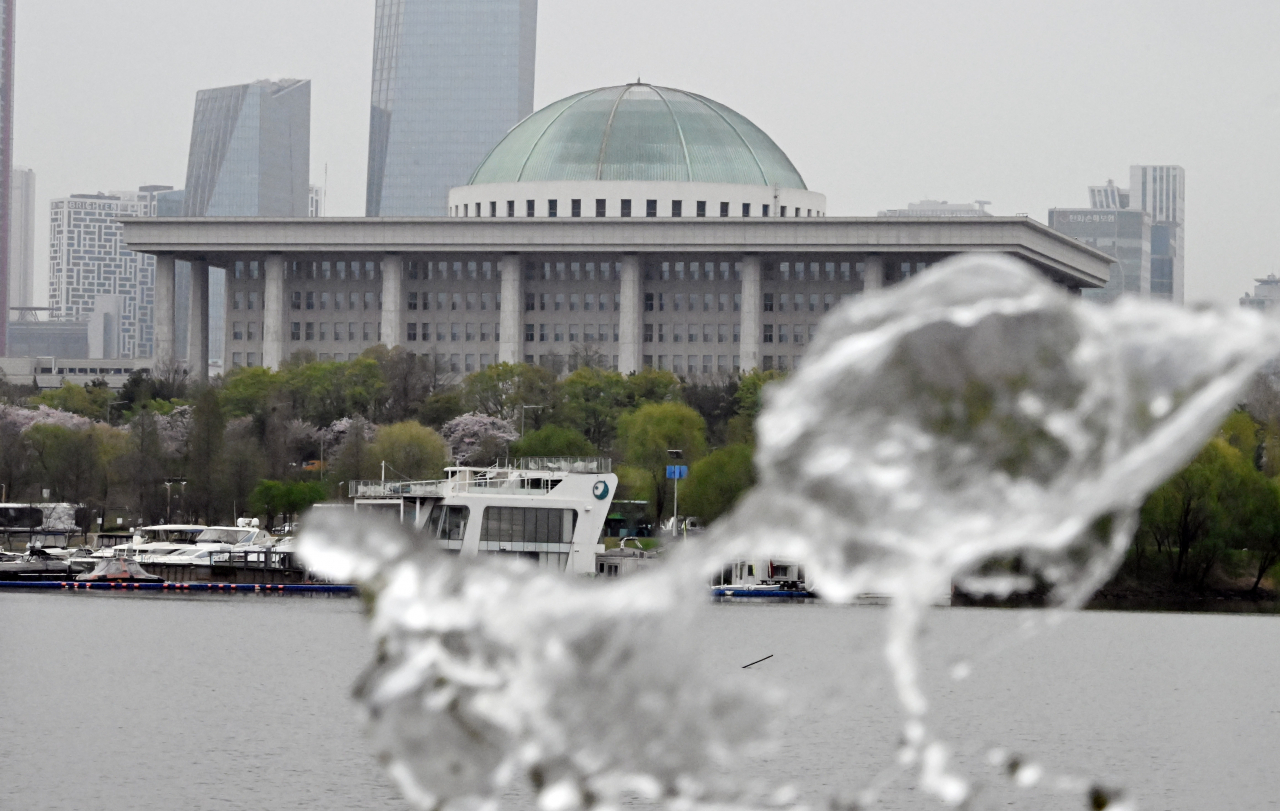
Parliamentary influence
Experts have diverging views on the implications of the Democratic Party's landslide victory and its expanded representation in the National Assembly for Yoon's foreign and security policy.
Kim Du-yeon, an adjunct senior fellow of the Indo-Pacific Security Program at the Center for a New American Security, said "Yoon's foreign policies won't be affected much because they generally don't require National Assembly approval."
Steven Denney, an assistant professor at Leiden University, emphasized that the National Assembly can influence foreign policy, and the numerical strength of the opposition party matters in wielding influence on the foreign policy agenda.
In the prior session, the Democratic Party held 142 out of 297 seats, while the People Power Party had 101. Yet, in this election cycle, the Democratic Party has secured 175 out of 300 seats, with the People Power Party now holding 108.
"While power in foreign policy is concentrated in the executive branch, an opposition-led Assembly can obstruct policies or demand modifications to them," Denney said.
"At the very least, it has the power to distract the president and impact discourse such that it challenges the outward messaging of the ruling administration. The extent of the opposition – whether it's a slim majority, comfortable majority, or super-majority – will also matter. Anything but a slim majority can comfortably put up roadblocks."
Examples of a disruptive legislature include the progressive-led opposition to the deployment of the US-made THAAD anti-missile defense system in 2016 and the 2015 Comfort Women Agreement between Seoul and Tokyo. Additionally, the assembly's involvement in ratifying the Korea-US Free Trade Agreement in 2011, while not consistently adversarial, was significant, according to Denney.
"Despite foreign policy being predominantly within the executive's purview, election outcomes can significantly influence the Yoon government's diplomatic efforts with Japan and trilateral relations with the US and Japan," Denney said.
"It is worth underscoring that Yoon has been the crucial link in the trilateral negotiations. Even if he is simply distracted, it will have ripple effects between the three countries."
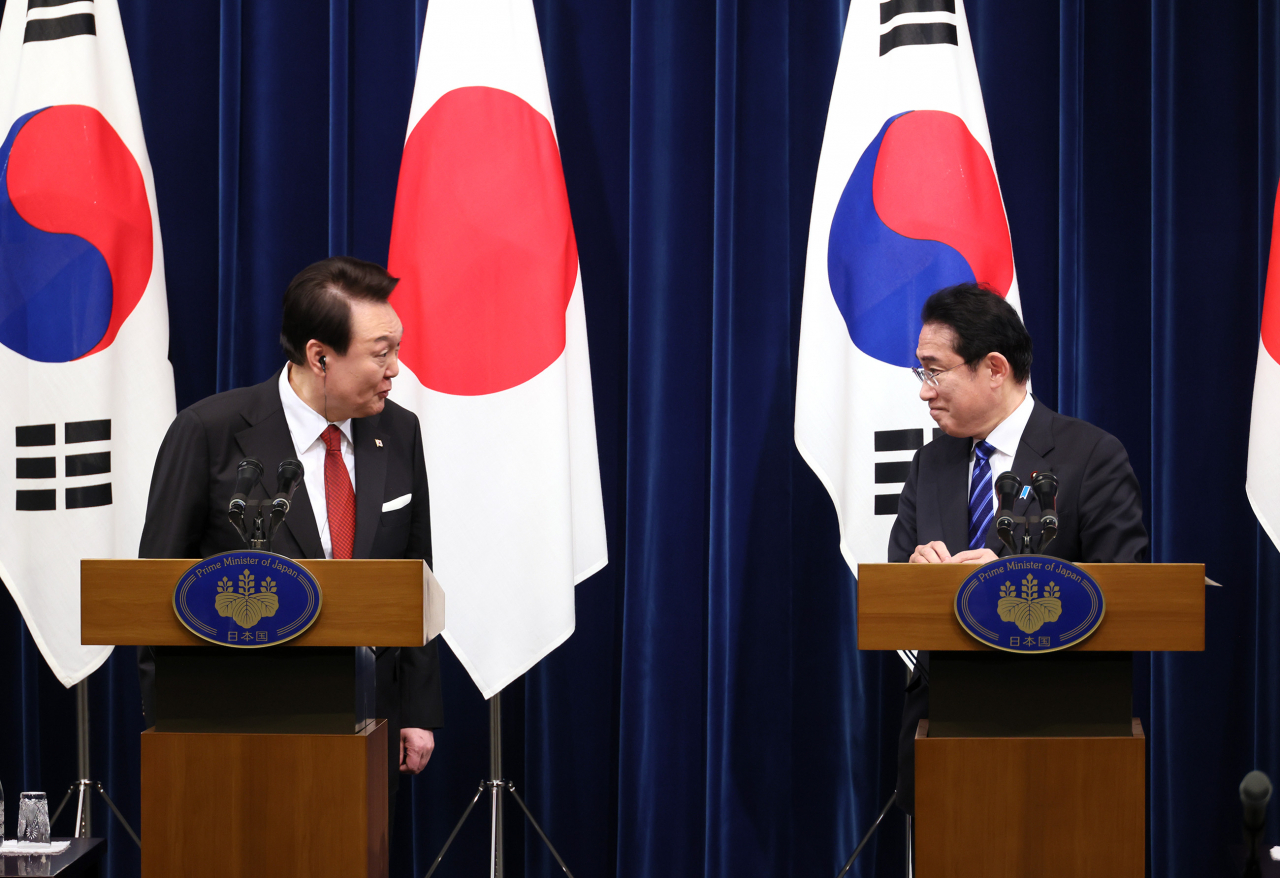
Korea-Japan ties: losing momentum
According to experts, the Democratic Party is expected to heighten its oppositional stance on foreign policy including Yoon's efforts toward reconciliation with Japan, including the Yoon government's landmark initiative to compensate the victims of Japan's wartime forced labor through a third-party reimbursement plan.
The dissenting voices will inevitably undercut the leadership's push for trilateral cooperation with the US and Japan, a strategic alignment that has experienced intensified consolidation and institutionalization since the historic Camp David summit -- the pioneering trilateral gathering.
"Opposition party members may feel more emboldened to speak out against Yoon's approach to North Korea and ongoing rapprochement with Japan in the absence of receiving concessions from Tokyo addressing historical grievances," Yeo said.
"This in turn may slow the momentum behind US-Japan-Korea trilateral cooperation over the past two years, even though the South Korean public generally supports strengthened ties with the United States and the need for Korea to expand its security partnerships," Yeo added.
Jeffery Robertson, an associate professor of Diplomatic Studies at Yonsei University, said Japan and the US will have less confidence in Yoon's capacity to carry through negotiated outcomes, as well as their longevity.
"Going forward, partners will be aware that initiatives requiring legislative approval will be less likely to secure support and will likely be abandoned in the next administration," Robertson said.
"Additionally, Yoon's focus will need to turn to domestic affairs as issues pile up. This makes Yoon a foreign policy lame duck."
Shin Gi-wook, director of the Walter H. Shorenstein Asia-Pacific Research Center and a professor at Stanford University, suggested that the election results in South Korea, coupled with Japanese Prime Minister Fumido Kishida’s low approval ratings, could dampen the momentum for improving ties between South Korea and Japan.
"I think the election outcomes will hinder the momentum that the Yoon government has built regarding diplomacy with Japan, not simply because of his loss domestically, but also because of the weak political leadership of Kishida as well, who is also suffering from low domestic approval ratings," Shin said.
"It is unfortunate for the Korea-Japan relations that both leaders are politically struggling."
As Japan's ruling Liberal Democratic Party prepares for a presidential vote at the end of Kishida's term as LDP president in September, observers say Kishida is unlikely to continue holding both positions.
Pacheco Pardo presented a contrasting viewpoint. He believed Yoon can persist in implementing his preferred approach without the constraint of future elections concerning Korea-Japan relations. He also noted that recent hesitancy from both Yoon and Kishida to meet, driven by domestic considerations, will no longer be a concern for Yoon.
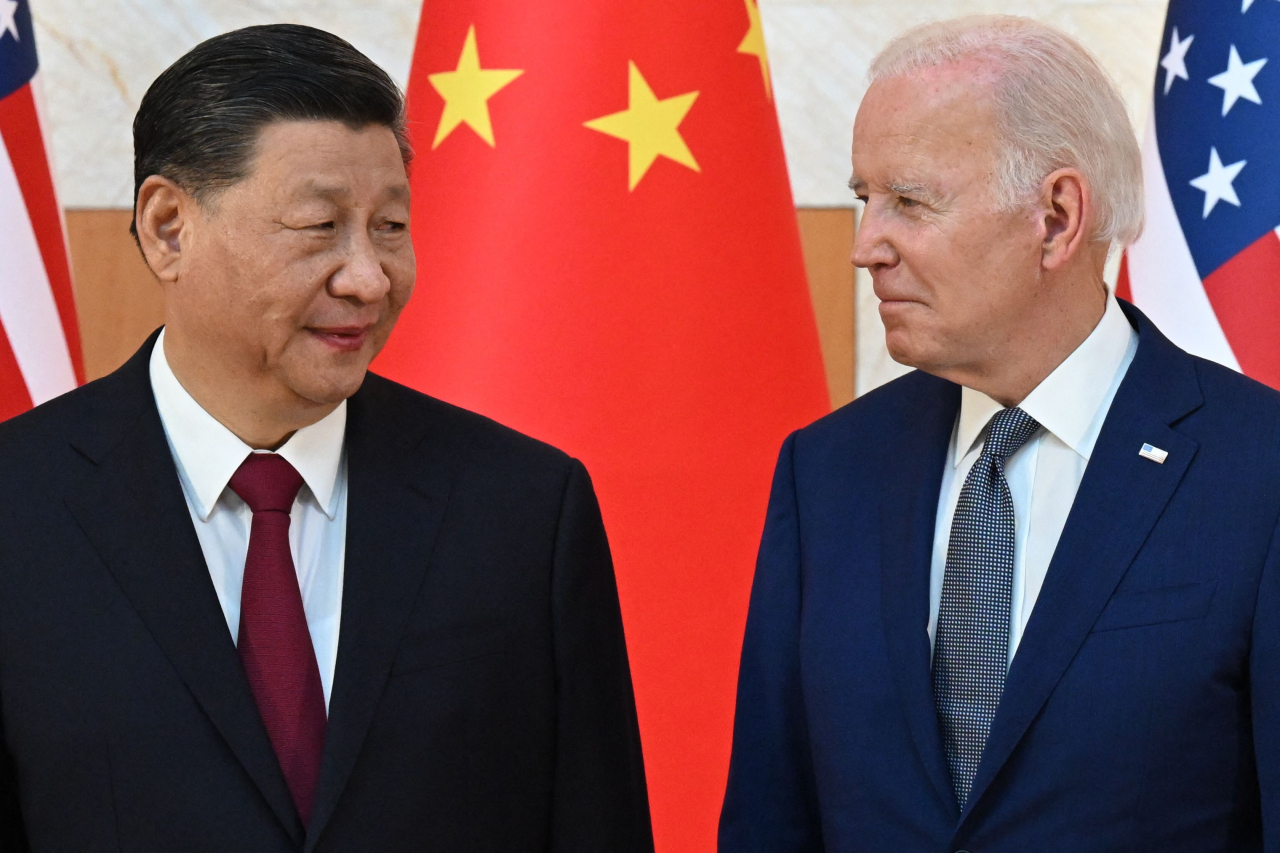
China policy on course
Experts shared the view that Yoon, who has abandoned strategic ambiguity between the US and China, will face increasing pressure to alter the course of its policy toward China.
"With their landslide win, the opposition will have stronger capabilities to limit Yoon’s foreign policy objectives. He will face more political pressure to adjust his alliance-focused policy with the United States to a more balanced policy that seeks better relations with China," Shin said.
Experts concurred, however, that Yoon is unlikely to alter his diplomatic trajectory concerning China.
"Until Yoon came to power, Seoul sat on the fence between Beijing and Washington. Yoon hopped off the fence, but fell flat on his face on the US side," Robertson said.
"Yoon already started clambering back onto the fence, and we could expect this to continue throughout the rest of his term."
Richey also emphasized that he doesn't anticipate Yoon's policy stance on China to shift, primarily due to two reasons: The president's commitment to trilateral cooperation with Japan and the US, which China opposes, and Yoon's lack of inclination to adopt North Korea-related policies for which China could provide assistance or cooperation.
Denney pointed out that unfavorable public sentiment would constrain Yoon in terms of re-navigating its China policy.
"Election results may shape the Yoon government's approach to China, with a progressive-dominated legislature seeking more balance between Washington and Beijing and less overt emphasis on the ROK-US alliance as a centerpiece of South Korea’s foreign policy," Denney said, referring to South Korea by its official name, the Republic of Korea.
"However, South Korean public opinion regarding China is decidedly negative, which will constrain the extent to which lawmakers wish to push Seoul toward a balancing strategy."
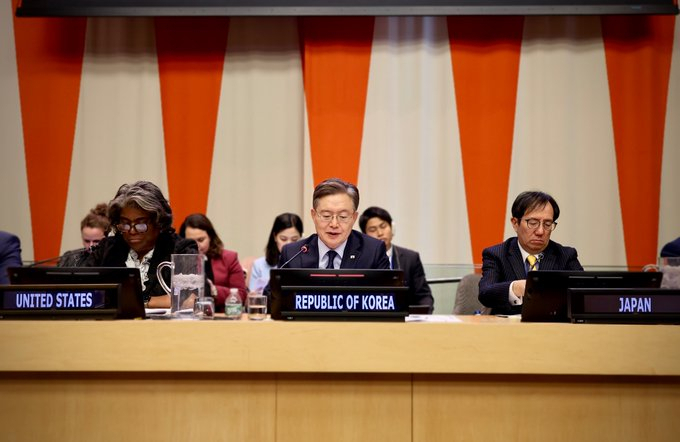
Bolder moves likely
Kim from the CNAS suggested that Yoon is expected to advocate for his foreign policy initiatives without hindrance from the Democratic Party gaining more seats, and he may even pursue foreign policies more assertively.
"Yoon will likely accelerate his foreign policies like on North Korea, strengthening the alliance with the US, improving relations with Japan and contributing more to global issues because of his own conviction and style," she said.
"We may even see him pursue bolder foreign policies. But a possible challenge in implementing them could be the country's focus on the 2027 presidential election now, including Yoon's own party."
Kim said that the execution of his foreign policies could be contingent upon bureaucrats maintaining the same level of commitment, particularly if the opposition-controlled National Assembly slashes budgets or if bureaucrats sense domestic political instability until 2027.
Pacheco Pardo underscored that South Korea cannot afford to disregard the international community's calls for supporting war-torn Ukraine and deterring China, irrespective of the shifting dynamics within the National Assembly.
"Regardless of the outcome of the election, the international community, including the US and others, will continue to ask Korea to be part of international initiatives to support Ukraine, deter China, etc.," he said.
"This type of demand on Korea won't be going away, and I don't think that Yoon or any future Korean president can ignore them for domestic political reasons."




![[KH Explains] No more 'Michael' at Kakao Games](http://res.heraldm.com/phpwas/restmb_idxmake.php?idx=644&simg=/content/image/2024/04/28/20240428050183_0.jpg&u=20240428180321)






![[Grace Kao] Hybe vs. Ador: Inspiration, imitation and plagiarism](http://res.heraldm.com/phpwas/restmb_idxmake.php?idx=644&simg=/content/image/2024/04/28/20240428050220_0.jpg&u=)







